Table of Contents
The UGC NET Mass Communication and Journalism syllabus covers a comprehensive range of topics essential for aspirants in this field. It includes communication theories, media and journalism ethics, media research methods, media laws and regulations, media management, advertising, public relations, film studies, television production, radio broadcasting, and new media technologies. This article provides a detailed explanation of the UGC NET Mass Communication and Journalism syllabus PDF to help candidates plan their preparation effectively.
UGC NET Mass Communication and Journalism Studies Syllabus 2025- Overview
Candidates seeking the UGC NET Mass Communication and Journalism syllabus and exam pattern have come to the right place. Both Paper I and Paper II syllabus details are available here, offering all the essential information aspirants need to prepare effectively for the UGC NET Mass Communication and Journalism Exam 2025.
| UGC NET Mass Communication and Journalism Syllabus 2025 | |
| Exam Name | UGC NET |
| Conducting Body | National Testing Agency |
| Exam Type | NET |
| Subject | Mass Communication and Journalism |
| Subject Code | 63 |
| Official Website | https://ugcnet.nta.nic.in/ |
UGC NET Mass Communication and Journalism Syllabus
To qualify for the UGC NET, candidates must be well-prepared and have a strong grasp of the principles and practices of mass communication, journalism, and related disciplines. They should be able to critically analyze and apply these concepts in both academic and professional contexts. The UGC NET Mass Communication and Journalism syllabus is designed to evaluate candidates’ knowledge, analytical skills, and research abilities in this field. The 2025 syllabus remains consistent with previous years, so aspirants should begin their preparation by focusing on the topics that carry the most weight in terms of marks to maximize their performance.
UGC Mass Communication and Journalism Exam Pattern 2025
The UGC NET 2025 exam consists of two papers with a total duration of three hours, featuring objective-type multiple-choice questions. Paper 1 is common for all candidates, while Paper 2 is subject-specific. The UGC NET Mass Communication and Journalism syllabus outlined here helps aspirants identify key topics in each section and plan a focused, well-structured study schedule for effective preparation.
UGC NET Mass Communication and Journalism Syllabus for Paper II
The UGC NET Mass Communication and Journalism exam’s Paper II will cover 10 units. The candidate may choose from these. This test will comprise 100 questions, each worth two marks. Every question is compulsory to attempt. Below are the units available for the UGC Mass Communication and Journalism Syllabus PDF for Paper II that candidates can review.
| Unit | Syllabus |
| Unit 1: Introduction to Journalism and Mass Communication | Unit 2: Communication for Development and Social Change |
|
|
| Unit 3: Reporting and Editing | Unit 4: Advertising and Marketing Communication |
|
|
| Unit 5: Public Relations and Corporate Communication | Unit 6: Media Laws and Ethics |
|
|
| Unit 7: Media Management and Production | Unit 8: ICT and Media |
|
|
| Unit 9: Film and Visual Communication | Unit 10: Communication Research |
|
|
Download UGC NET Mass Communication and Journalism Syllabus PDF
The UGC NET Mass Communication and Journalism syllabus is available in both Hindi and English. Candidates can access and download the complete syllabus PDF by clicking on the direct links provided below, ensuring they have the official document for thorough preparation.
| UGC NET Mass Communication and Journalism Syllabus PDF | |
| Language | UGC NET Mass Communication and Journalism Download PDF |
| English | Download PDF |
| Hindi | Download PDF |
How to use the UGC NET Mass Communication and Journalism Syllabus to crack the UGC Exam?
To effectively use the UGC NET Mass Communication and Journalism syllabus to crack the UGC NET exam, you should follow a structured and disciplined study plan. Here are some steps to help you prepare:
- Familiarize Yourself with the Syllabus: Start by thoroughly reading and understanding the UGC NET Mass Communication and Journalism syllabus. Break it down into topics and subtopics to get a clear overview of what you need to cover.
- Create a Study Schedule: Develop a study schedule that allocates time for each topic according to its weightage and your familiarity with it. Make sure to set aside dedicated study time for each section regularly.
- Study Material and Resources: Gather high-quality study materials such as textbooks, reference books, previous years’ question papers, and online resources. Ensure that your study materials align with the syllabus.
- Understand the Exam Pattern: Familiarize yourself with the UGC NET exam pattern, including the number of questions, marking scheme, and duration of the exam. This will help you plan your time during the actual exam.
- Practice Previous Year Papers: Solve previous years’ question papers to get a sense of the exam’s difficulty level and question patterns. This will also help you manage time better during the exam.
- Take Mock Tests: Take mock tests regularly to simulate exam conditions. This will help you assess your progress, identify weak areas, and improve your time management skills.
- Study Smart: Focus on understanding key concepts and theories in Mass Communication and Journalism. Take notes, create flashcards, and use mnemonic devices to remember important information.

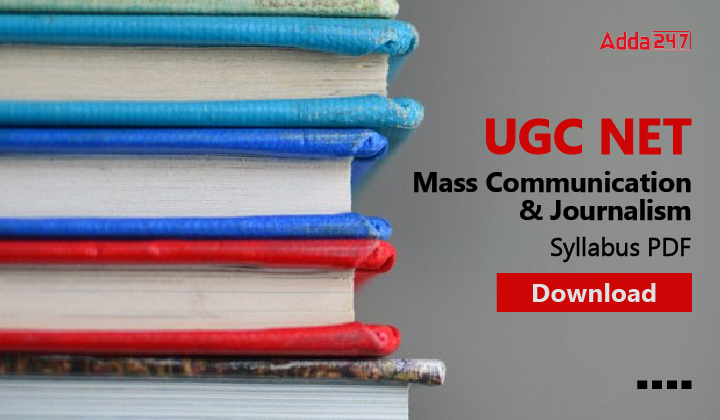
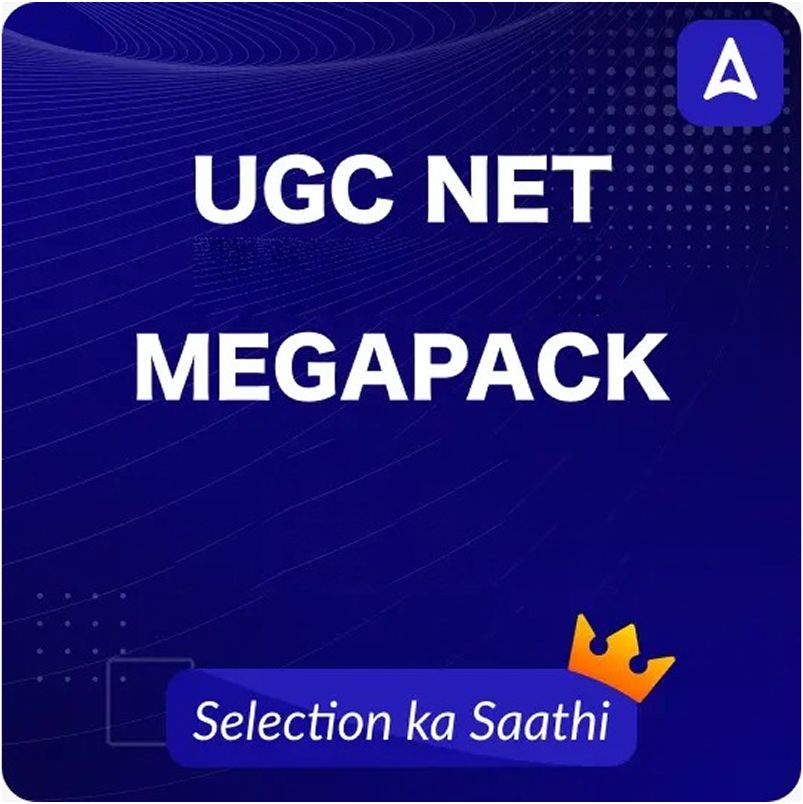

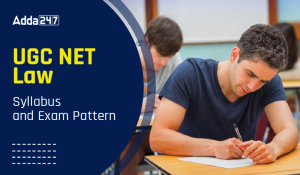 UGC NET Law Syllabus 2025, Download PDF ...
UGC NET Law Syllabus 2025, Download PDF ...
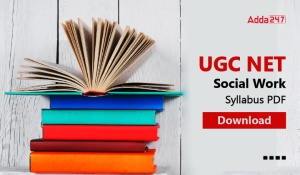 UGC NET Social Work Syllabus 2025 PDF Do...
UGC NET Social Work Syllabus 2025 PDF Do...
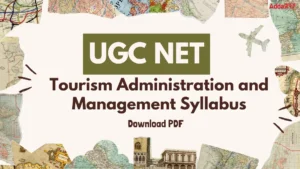 UGC NET Tourism Administration and Manag...
UGC NET Tourism Administration and Manag...












